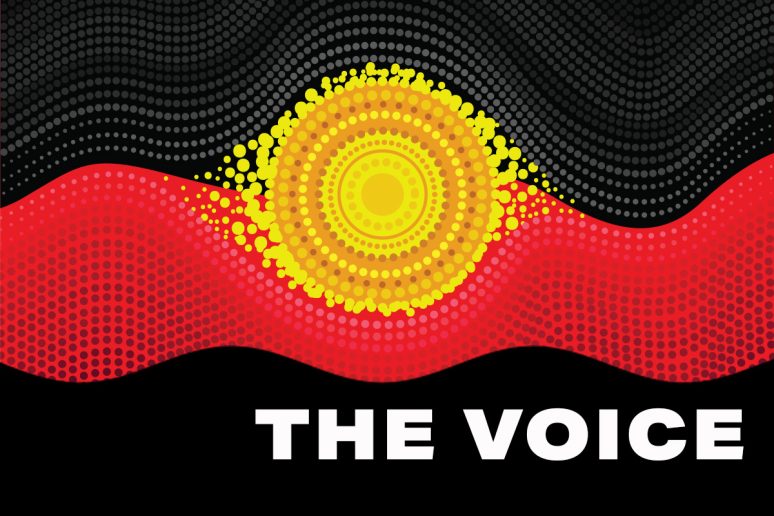By Zoe McKenzie, MP for Flinders
THERE are times when something very special happens in the Australian Parliament, when a debate makes us look carefully and critically at ourselves and the society in which we live.
This parliamentary sitting fortnight’s focus on the Indigenous Voice to Parliament has been one of those moments. I have seen parliamentarians of all backgrounds bring their best selves, their love of our country, their sense of responsibility and their reflection of their communities, to the debate – for all to hear and see. If you have time, read Hansard. You will not be disappointed in your elected representatives.
Like my colleagues, I am firmly committed to the recognition of Australia’s First Nations peoples in the Constitution. This proposition has had bi-partisan support for almost two decades. That support continues – more certain than ever – and underpins the current debate.
However, I cannot recommend a Yes vote due to the unacceptable constitutional and legal risk it contains.
This is a conclusion I reached after long discussion with our community, complemented by my grounding in constitutional law and practice, as well as my experience in public policy over 25 years, some of which was directly relevant to our Indigenous peoples, and developed in partnership with Indigenous experts and representatives, at both the national and the state level.
Since last August, I have sought out our local Indigenous groups, cultural leaders, as well as those from the Mornington Peninsula who made submissions to the Calma Langton co-design process for a Voice to hear their views directly.
I am especially grateful to the community of Willum Warrain, who have always been willing to meet and talk and who, so generously, add to our local knowledge and wisdom of aboriginal history and culture; and to Aunty Helen Bnads and Uncle John McLean – who in their grace, wisdom, passion and love for both the Indigenous and broader community across the peninsula – remind us daily of the good fortune we share to make our shared home in the country with the longest living culture on the planet.
The Australian Constitution is a pragmatic and plain document, setting out the responsibilities of the Commonwealth Parliament – it reflects the hard-won bargain of a decade of constitutional conventions across Australia in the 1890s.
Its interpretation falls to the High Court – which has taken different approaches over time. For the first 20 years of the federation, the court favoured the powers of the states – but that changed dramatically in 1920, when a majority of judges decided to rely on the words of the document, not the intentions of those who wrote them, and give generous interpretation of the powers of the Commonwealth.
There have been other significant changes in their approach to interpretation over time, with significant impact on the way we live.
Both the words in the proposed referendum – and the expressed intentions and aspirations of both the government and Voice supporters – indicate it is intended to have an impact on the daily operations of Australia’s executive government. Executive government includes all government decision making and policy formulation – from welfare to weaponry, banking to Medicare, education to industrial relations.
Despite reasonable requests from many to remove the reference to executive government and put the issue beyond dispute, the Albanese government has refused. While lawyers disagree about what the worst-case scenario might be, former High Court justices have warned that if a court were to find a duty to consult the Voice before the execution of any executive power, then it could “bring the government to a halt” or “make government unworkable”.
No matter how unlikely – the consequences of that risk make it one I cannot recommend to the people of Flinders.
There remains time for the government to improve the Voice model it contains. I remain hopeful that it might, in order to present a consensus option to the Australian people.
It was only five months ago when Noel Pearson – a person whose impact on Australian public policy has been significant over the last 20 years – gave us wise counsel in saying: “… I am convinced the referendum on Indigenous Australian recognition should not be understood as Yes alliance versus No alliance, conservatives versus progressives, left versus right, us versus them. The question we are facing is not one which should be allowed to descend into binary conflict. Recognition is about synthesis. It is about Yes meeting No, city meeting the bush, remote meeting the metropolis, and conservatives meeting the progressives. It is one of those times when we plead with both camps to see the other as fellow countrymen, and to find the common and higher ground that can unite around.”
The Constitution belongs to all of us.
Whatever side we sit on, for whatever reasons, I hope we continue to be kind and respectful of each other’s individual choices, and whichever way you vote, I commit to respecting your decision.
First published in the Mornington News – 30th May 2023


